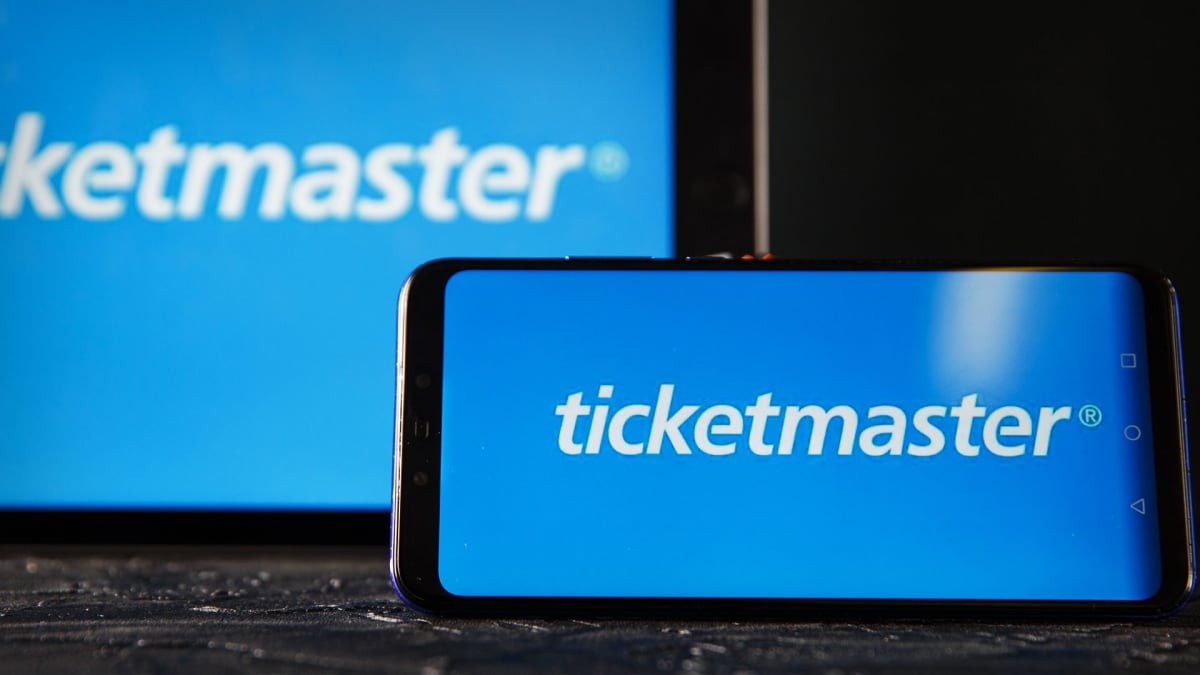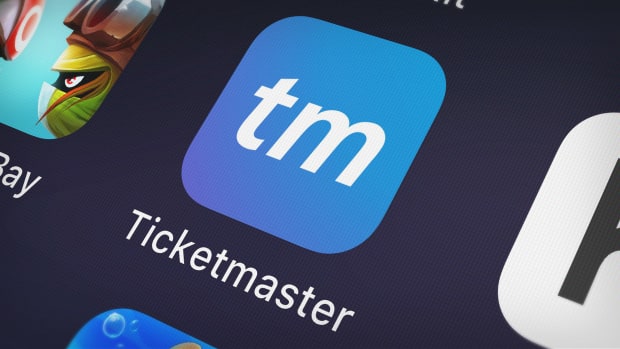
To paraphrase Taylor Swift, don't we know this story all too well?
This year has seen many stadium-packing artists, from Bruce Springsteen and BTS to Paul McCartney and Harry Styles, go through a similar ordeal as devotees of Taylor Swift have recently when trying to buy concert tickets, with the results being angry fans, embarrassed artists, and sky-high reseller prices on StubHub.
For years now, people have been fed up with Ticketmaster's (LYV) high prices and seeming inability to fend off scalpers. Reports that the company offers software that helps scalpers resell tickets in order to gain a commission inspired a mass wave of outrage but didn't really change anything.
In 2019, the Department of Justice announced it would take legal action against Live Nation and Ticketmaster, which merged in 2009, for alleged violations of the consent decree, and for allegedly forcing venues to use Ticketmaster in order to get access to the artists Live Nation represents.
But as Forbes commentator Daniel Marcus noted at the time, "while hopes were high when it was announced that the DOJ was prepared to take legal action against Ticketmaster, one is left to wonder what this new deal will actually accomplish."

Shutterstock
Will Ticketmaster Face Consequences?
In the aftermath of the mass public outrage that followed the recent public pre-sale for Swift’s 2023 stadium tour, which saw the website crash several times and tickets quickly disappear, only to show up on StubHub for several thousands of dollars, lawmakers such as California representative Katie Porter, Rhode Island representative David N. Cicilline, New York representative Alexandria Ocasio-Cortez and many others have called for an antitrust investigation into the Live Nation and Ticketmaster merger.
Ticketmaster has never seen this level of political scrutiny before, with critics alleging that the company is now effectively a monopoly that controls the live music industry, and without any real competition, it is overcharging fans and not doing enough to strengthen its infrastructure against scalpers.
But could this time actually be different? Is it possible that the Swifties will finish the job the Jamily started?
It's far too soon to say, of course.
But according to Jonathan Klarfeld, a veteran antitrust enforcer and practitioner who led many significant merger investigations and challenges during his 13 years at the Federal Trade Commission's Bureau of Competition in Washington, D.C., it's unclear how much the Swift debacle is really related to the Live Nation and Ticketmaster merger, or if anything will happen this time. (He currently serves as a litigation & enforcement partner at global law firm Ropes & Gray.)
Klarfeld spoke with TheStreet to offer more details about the current situation.
TheStreet: It seems that from Taylor Swift fans to Harry Styles fans to Bruce Springsteen fans, everyone is mad at Ticketmaster.
Klarfeld: People don't love Ticketmaster. You can include lots of people, probably, in that category. I think the antitrust aspects of the situation strike me as separate, certainly from the problem with the Taylor Swift ticket sales.
If you are selling 100,000 or two million tickets and the demand is 25 million people, it’s tough to structure your infrastructure that way. That is a separate issue. If Ticketmaster had more competition, would their competitor have been structured in such a way to handle the demand better? That’s a very difficult thing to conjecture about.
It’s generally the view that more competition would enhance the types of services that are provided to customers. Whether or not anyone would be in the position to adequately cope with this particular situation of unprecedented demand; that is another question.
I don’t think the Taylor Swift on-sale situation had as much to do with competition, or in particular, the Ticketmaster Live Nation deal, as the political environment has suggested.
The DOJ filing was about Live Nation potentially having a nascent ticketing operation they were trying to build up. Whether or not anybody would scale their infrastructure to deal with kind of one-off events like the Taylor Swift situation is another question. If every large concert that goes on sale is having disastrous problems, that may suggest something's not going great with Ticketmaster service. And maybe the competitive situation is kind of related to that. But the Taylor Swift thing seems like way at one end of the problem. Breaking up Ticketmaster and Live Nation will not instantly or even in the short to mid-term remotely remedy that. That's just not what the problem was there.
TheStreet: The main argument I've seen put forth is that when Ticketmaster gets record profits, it does stock buybacks or gives the executives bonuses instead of putting that money on going back into the actual business itself, hiring more people, or spending more money to make the infrastructure work better and make it more efficient.
Do you think that's the case here? Because the argument is that when you don't really have any competition, there's not much incentive to spend money to make your product better.
Klarfeld: I can't speak specifically to them, but I completely agree, directionally, that not having sufficient competition does allow that kind of situation to happen, because you're not having to compete as vigorously.
I think the problem is just the idea of venues operating with a smaller scale ticket entity and, whether or not that entity, which presumably we want to be lower priced than Ticketmaster, has been shown to be able to invest more than Ticketmaster. That's a difficult question, but I'm going to stand up on the side of more competition.
I think generally you would assume that competition leads to better investment in the product, and not just taking profits, which you're able to do if you're facing very, very little competition. I think that's really the question. But to be clear, they didn't face a lot of competition before the Live Nation deal. They had about 80% market share at that point in time.
TheStreet: I feel like people have a very defeatist attitude about this, that "nothing's going to change. They're not going to break up the Ticketmaster monopoly. Nothing ever changes in this country." Do you think Ticketmaster could actually be broken up?
Klarfeld: I think it would be a long and bloody and difficult process for the agencies to bring that case. It doesn't mean they won't. The FTC has sued Facebook to try and break up several of their acquisitions. It is a big task and not something that the agencies will take lightly.
What was cited anonymously in that motion to modify the consent order and the allegations from those venues were never admitted to by the defendants, presumably because they're going to contest it. You would need to prove all these things, that they're actually leveraging the Live Nation component to maintain the Ticketmaster monopoly. It's not impossible. But that's a multi-year process, of course. You would need to really pull together a significant set of information in order to do that. It's very, very hard to know. It is possible but unlikely.
It's an area of interest because it's high profile. And so perhaps that raises the possibility, a little bit, but it ultimately will come down to the facts. They have to be able to show that the company is definitively engaging in anti-competitive conduct.
I guess the interesting question is how chastened, in this enforcement environment, Ticketmaster may or may not be, particularly in the wake of all the scrutiny.







